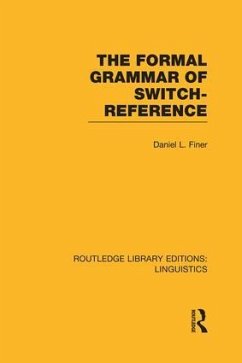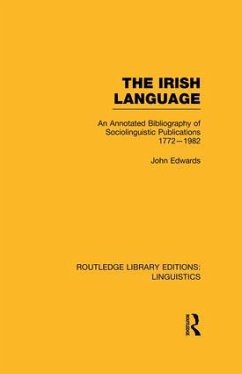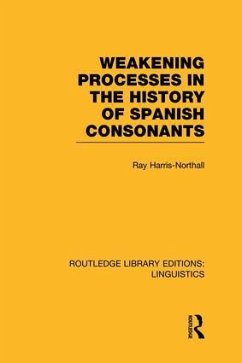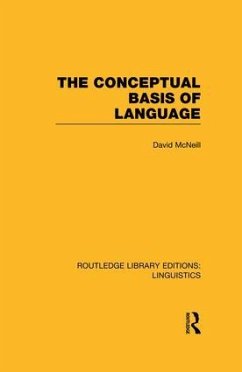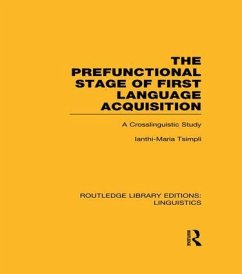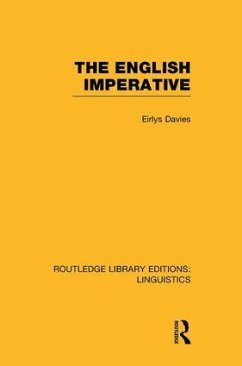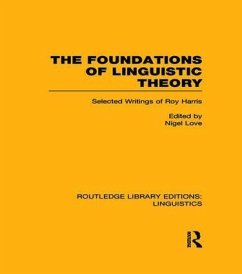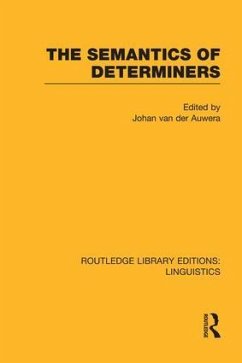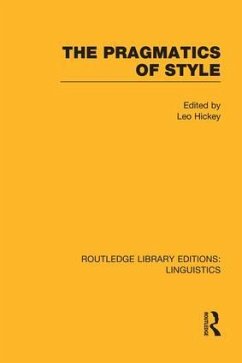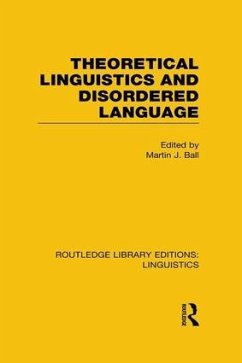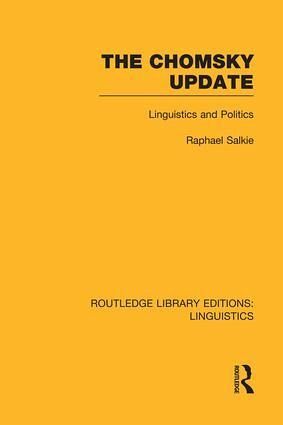
The Chomsky Update (RLE Linguistics A
General Linguistics)
Versandkostenfrei!
Versandfertig in 1-2 Wochen
40,99 €
inkl. MwSt.
Weitere Ausgaben:

PAYBACK Punkte
20 °P sammeln!
This book provides an introduction to Chomsky's linguistics, laying out his basic assumptions and aims - in particular, his consistent drive to make linguistics a science. It examines the implications for other fields such as philosophy and psychology, as well as the main challenges to Chomsky's position. It also sets out the key themes in Chomsky's political writings and his libertarian socialist views. By focusing on Chomsky's conception of human nature and human freedom the author draws out the links between the two sides of Chomsky's work, in the belief that both sides raise issues which c...
This book provides an introduction to Chomsky's linguistics, laying out his basic assumptions and aims - in particular, his consistent drive to make linguistics a science. It examines the implications for other fields such as philosophy and psychology, as well as the main challenges to Chomsky's position. It also sets out the key themes in Chomsky's political writings and his libertarian socialist views. By focusing on Chomsky's conception of human nature and human freedom the author draws out the links between the two sides of Chomsky's work, in the belief that both sides raise issues which can profitably be explored.





